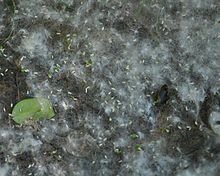Welcome, readers, to July’s issue of Synchronized Chaos Magazine. This time we’re looking at Perspective. How we see a single creature within the rest of the environment, or exploring common themes from different angles.
Returning poet Dave Douglas points out that Western society’s modern focus on individualism is not a constant or usual part of our human history. The concept of individual identity, self expression, value, empowerment and purchasing power, which we now see reinforced through our cultural media and marketing messages, is an artifact of particular times and places and comes with advantages and disadvantages. Douglas critiques the shallow consumerism that he sees as coming out of a culture where people assert their identity through buying the latest personal electronics products.
Returning essayist Donal Mahoney advises young writers that not all have to emulate famous authors such as Charles Bukowski, who made a name for himself as much from his outsized personality and rebellious behavior as from his writing. One can become distinguished as a writer by mastering one’s craft while remaining oneself. He also encourages writers to take rejection in stride, rather than as a personal affront.
Peter Jacob Streitz, another returning poet, offers up a set of pieces grappling with individual and cultural loss, change and evolution. Whether it’s the decimation of Native culture, widowhood, or our own mortality, our world is full of destruction, and not even our best efforts and prayers can always protect us.
Poet Natalie Crick also contributes a set of short pieces evoking natural and supernatural images of death and decay. Yet, her subjects have aesthetic grace even in their deterioration, which comes through in lyrical terms.
In her monthly Book Periscope column, Elizabeth Hughes reviews Courtney Killian’s Days of the Kill. This suspense novel centers on a young protagonist who tries and fails to escape the effects of her family’s mental dysfunction. Next, Hughes hones in on the intergenerational wisdom present in Richard Slota’s upcoming novel Stray Son, a tale of fatherhood, manhood, and war.
Returning contributor Jeff Rasley’s new book Hero’s Journey explores the psychology and cost of setting up real people as heroes. In his excerpt, he reminisces about a boyhood friend whose real life started out similar to that of their shared fictional sports hero, Chip Hilton. When reality intervened, and his friend proved imperfect, Rasley began a thoughtful exploration of the meaning of bravery and honor, not just in sports but in different realms of life.
Returning contributor Christopher Bernard reviews San Francisco’s FoolsFury theater festival, discussing various attempts at rendering disparate content through physical performance. Existential literature transmutes into circus acts, the suffering of refugees comes through onstage through faux lectures at an imaginary border, and Japanese folktales take shape as large ensemble casts teeter between realism and fancy.
Finally, returning poet Joan Beebe contributes an innocent and slightly whimsical poem about cottonwood seeds. Still, she’s got a unique perspective here: she’s not praising the seeds’ beauty, she’s cursing them for getting stuck in her window screens and blocking her view of nature.
Here’s hoping everyone enjoys this issue.
- Seeds of the eastern cottonwood
- Cottonwood Tree
More on the cottonwood tree here.


